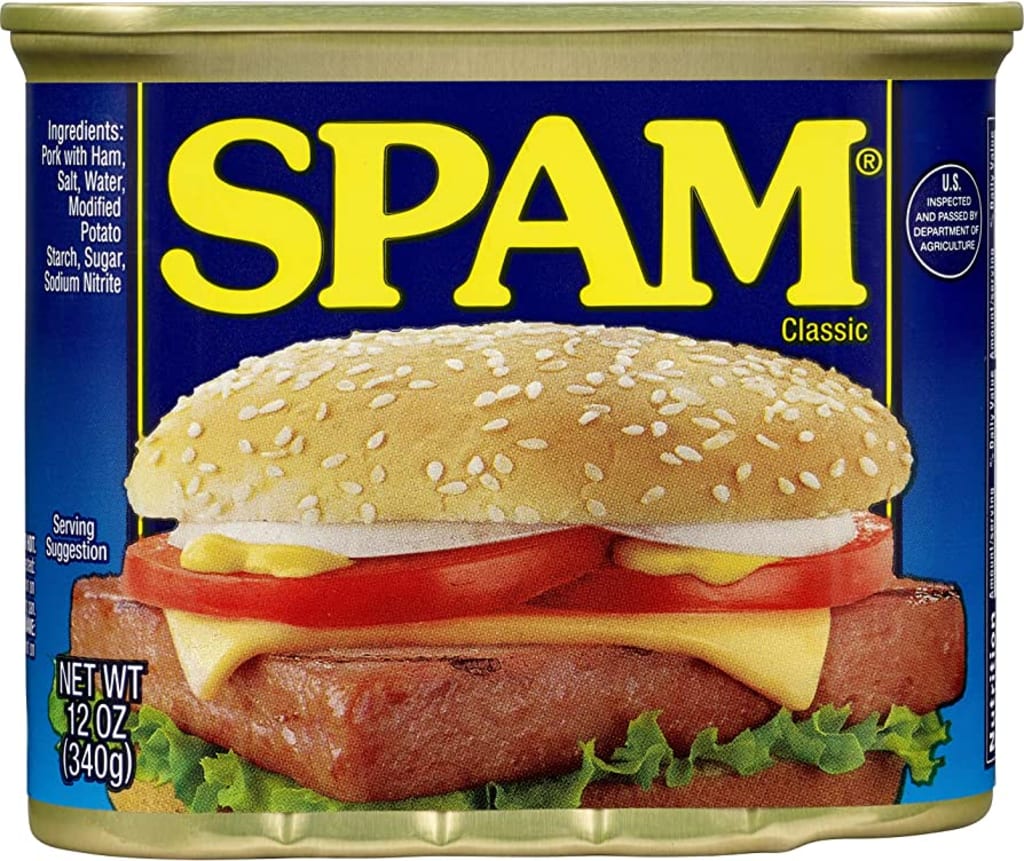Can Dogs Eat Spam? Is Spam Safe for Dogs?
Exploring the Risks and Benefits of Dogs Eating Spam

No, dogs should not eat spam. While dogs are omnivorous, spam is not a suitable food choice for them. Spam contains high levels of sodium and fat, which can be harmful to dogs and lead to health issues such as sodium ion poisoning, pancreatitis, obesity, and digestive problems.
Feeding dogs a balanced diet of high-quality dog food specifically formulated for their nutritional needs is the best way to ensure their overall health and well-being. If you have any concerns about your dog's diet, consult with a veterinarian for guidance.
Is Spam Bad for Dogs to Eat?
Spam, like other processed meats, contains high levels of sodium, making it a potential concern for canine consumption. Excessive sodium intake can lead to sodium ion poisoning in dogs, causing symptoms such as vomiting, diarrhea, lethargy, and dehydration.
Moreover, the high sodium content in spam can also put dogs at risk of developing salt poisoning, which can have severe health effects.
Therefore, it's crucial to be cautious when considering feeding your dog spam.
Exploring the Risks and Benefits
While spam may be enticing to our canine companions due to its savory aroma, it's essential to examine the nutritional value and potential drawbacks associated with feeding dogs this canned meat product. Spam is relatively high in fat and sodium, which are not ideal for a dog's diet.
Dogs primarily require a balanced diet consisting of proteins, carbohydrates, and fats, with controlled levels of sodium. Feeding spam regularly can lead to weight gain, obesity, and a range of health concerns, including pancreatitis.
The Nutritional Value of Spam for Dogs
In terms of nutritional content, spam contains some protein, but its high sodium and fat content overshadow its potential benefits. Dogs need protein to support muscle growth and maintenance, but it's crucial to provide them with lean, quality sources of protein, such as lean meats or commercially formulated dog food.
While spam may offer a quick and convenient protein fix, it falls short in providing the necessary nutrients for a dog's overall well-being.
Sodium Content in Spam and Its Impact on your pup
One of the primary concerns associated with spam is its high sodium content. Your pup has different sodium requirements compared to humans, and excessive sodium intake can have detrimental effects on their health. When dogs consume a large amount of salt, it can lead to sodium ion poisoning or salt poisoning.
Symptoms of these conditions include increased thirst, loss of appetite, lethargy, vomiting, diarrhea, and in severe cases, it can even be life-threatening. The pancreas can also be affected, potentially leading to pancreatitis, an inflammation of the pancreas that can cause severe abdominal pain and discomfort for dogs.
Can Dogs Safely Eat Spam Lite?
Some dog owners might wonder if feeding their pets Spam Lite, a lower-sodium version of the canned meat, could be safe for dogs to eat. While Spam Lite does contain less sodium than regular spam, it's important to note that it still has a relatively high sodium content compared to what dogs need in their diet.
While it may be tempting to opt for a reduced-sodium option, it's best to consult with a veterinarian to determine if it's suitable for your dog's specific dietary needs.
Dangers of Feeding Spam to Dogs
Feeding spam to dogs can pose several dangers due to its high sodium and fat content, as well as the presence of unhealthy additives. The combination of ham, salt, and other processed meat ingredients in spam can lead to various health issues in dogs.
Aside from the risks of sodium poisoning and pancreatitis, excessive consumption of spam can cause weight gain, obesity, and other digestive problems. Moreover, spam is a source of empty calories for dogs, lacking the essential nutrients they require for optimal health.
The Role of Dog Food in a Balanced Diet
To ensure that your dog receives a nutritionally balanced diet, it's recommended to rely on high-quality commercially prepared dog food that meets their specific dietary needs. Canned dog food, formulated by veterinary nutritionists, provides the necessary nutrients in appropriate proportions.
These products are carefully designed to support your dog's overall health and well-being. Choosing a balanced dog food eliminates the risks associated with feeding them human foods that may be harmful or lacking essential nutrients.
Feeding Your Dog Cooked Spam: Things to Consider
If you still choose to occasionally offer your dog small amounts of cooked spam, there are several factors to consider.
Firstly, moderation is key. A tiny slice of spam as an occasional treat is unlikely to cause harm, but consistently feeding your dog spam can lead to health issues over time.
Secondly, ensure that the spam is cooked thoroughly to eliminate any potential bacterial contamination.
Lastly, be aware that spam contains potato starch, an additive that might not agree with all dogs, potentially leading to digestive upset.
Tips for Safely Feeding Your Dog Spam
If you decide to give your dog a small taste of spam, follow these tips to ensure their safety and well-being.
First and foremost, always consult with your veterinarian before introducing any new food to your dog's diet. They can provide personalized guidance based on your dog's breed, size, age, and overall health.
Additionally, monitor them for signs of digestive upset or other adverse reactions. Lastly, remember that spam should never be a substitute for a nutritionally balanced dog food and should only be given in minimal amounts, if at all.
What to Do If Your Dog Accidentally Eats Spam?
Accidents can happen, and if your dog accidentally consumes spam, there are a few steps you can take. Firstly, assess the situation and determine how much spam your dog consumed. If it was a small amount, monitor them closely for any signs of digestive upset or discomfort.
Ensure that they have access to fresh water to prevent dehydration. If your dog shows any concerning symptoms, such as persistent vomiting, diarrhea, or lethargy, it's best to contact your veterinarian immediately for further guidance.
Final Thoughts on Dogs Eating Spam
In conclusion, while dogs may find the taste of spam appealing, it is not a recommended food choice for them due to its high sodium and fat content. Feeding spam to dogs can lead to various health problems, including sodium ion poisoning, pancreatitis, obesity, and nutritional deficiencies.
It's always best to prioritize your dog's well-being by providing them with a balanced, veterinarian-recommended diet that meets their specific nutritional requirements.
If you have any concerns or questions regarding your dog's diet or their overall health, consult with a veterinary professional who can offer expert advice tailored to your dog's individual needs.
About the Creator
Typical Dude
Just your average guy navigating life's twists and turns. AI Enthusiast, good vibes, and terrible jokes. Stumbling through this adventure called existence. 🌍✌️






Comments
There are no comments for this story
Be the first to respond and start the conversation.